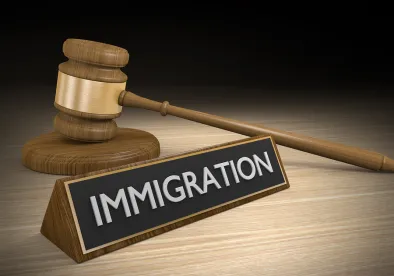On May 24, USCIS provided additional information related to the implementation of its expanded premium processing program. First announced March 29, 2022, USCIS stated its intention to expand premium processing to certain Form I-140 employment-based immigrant visa petitions, Form I-539 applications to extend/change nonimmigrant status, and Form I-765 applications for employment authorization. As promised, USCIS has implemented this expansion in a phased approach. Beginning June 1, 2022, USCIS will accept premium processing requests (Form I-907) for I-140 EB-13 Multinational Executive and Manager petitions filed with USCIS on or before Jan. 1, 2021. (Beginning July 1, 2022, USCIS will accept premium processing requests (Form I-907) for I-140 EB-13 Multinational Executive and Manager petitions filed with USCIS on or before March 1, 2021.) Additionally, beginning July 1, 2022, USCIS will accept premium processing requests (Form I-907) for I-140 EB-21 Professionals with Advanced Degrees or Exceptional Ability Seeking A National Interest Waiver petitions that were filed with USCIS on or before June 1, 2021. USCIS will accept either the Sept. 30, 2020, or the May 31, 2022, edition of the Form I-907 filed on behalf of these cases through June 30, 2022. Starting July 1, 2022, however, Applicants must file these requests using only the May 31, 2022, edition of Form I-907. The U.S. government filing fee for the I-140 EB-13 or EB-21 premium processing upgrade is $2,500, and USCIS will process these upgrades in 45 calendar days.
USCIS currently is dealing with a serious case backlog that has resulted in a significant number of pending cases and increased processing times caused by the “COVID-19 pandemic and resource constraints resulting from the prior administration.” USCIS’s new actions to reduce backlog and expand premium processing to provide relief to work permit holders may not be rolling out as quickly as hoped. Although Congress first authorized expanded premium processing eligibility through a stopgap appropriations bill passed into law in October 2020, USCIS did not issue its final rule on expanded premium processing until March 2022. Further, that rule as written cannot go into effect before May 31, 2022. Now in May 2022 USCIS has announced the first phase of cases eligible to take advantage of expanded premium processing (see above), but USCIS has yet to announce when relief for new (initial) I-140, I-539, or I-765 applications will be implemented beyond a general statement that this expansion will be implemented in “fiscal year 2022.” Currently, I-140 EB-13 processing times are anywhere from 13.5 to 17.5 months or more, and EB-21 processing times are anywhere from 15 to 18.5 months or more while I-539 and I-765 applications can sometimes pend for even longer periods. Thus, USCIS has a long way to go before it relieves its backlog crisis in a significant way.



 />i
/>i
